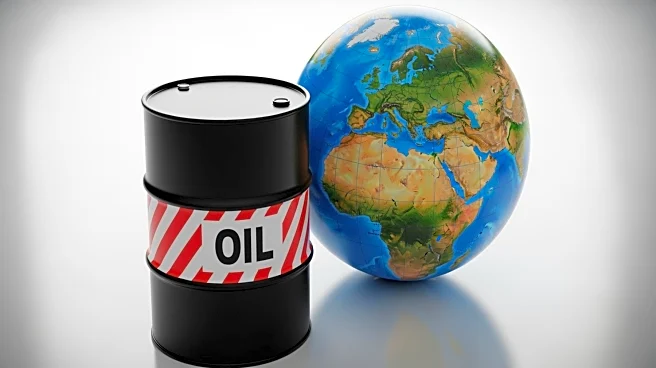What's Happening?
President Trump has announced significant sanctions against Russian state-owned oil companies, Rosneft and Lukoil, in response to Russia's ongoing military actions in Ukraine. The sanctions are part of
a broader strategy to pressure Russian President Vladimir Putin into serious peace negotiations. Despite previous discussions, Trump expressed frustration over the lack of progress in talks with Putin. The U.S. has refrained from providing Ukraine with Tomahawk missiles, citing the extensive training required for their use. Finland, a key EU member, has urged the U.S. to reconsider this stance, emphasizing the need for Ukraine to have robust defense capabilities.
Why It's Important?
The sanctions represent a significant escalation in the U.S.'s approach to the Ukraine conflict, potentially impacting global oil markets and international relations. By targeting major Russian oil firms, the U.S. aims to weaken Russia's economic base, thereby increasing pressure on Putin to engage in meaningful peace talks. This move could have wide-ranging effects on global energy prices and supply chains, affecting both U.S. and international stakeholders. Additionally, the decision not to supply Tomahawk missiles to Ukraine highlights the complexities of military support and the potential risks of escalating the conflict further.
What's Next?
The international community will be closely monitoring Russia's response to these sanctions. There is potential for further diplomatic engagements or retaliatory measures from Russia. The U.S. and its allies may need to prepare for shifts in the geopolitical landscape, including potential impacts on energy markets and security dynamics in Europe. The situation remains fluid, with ongoing discussions about military support and diplomatic solutions.











